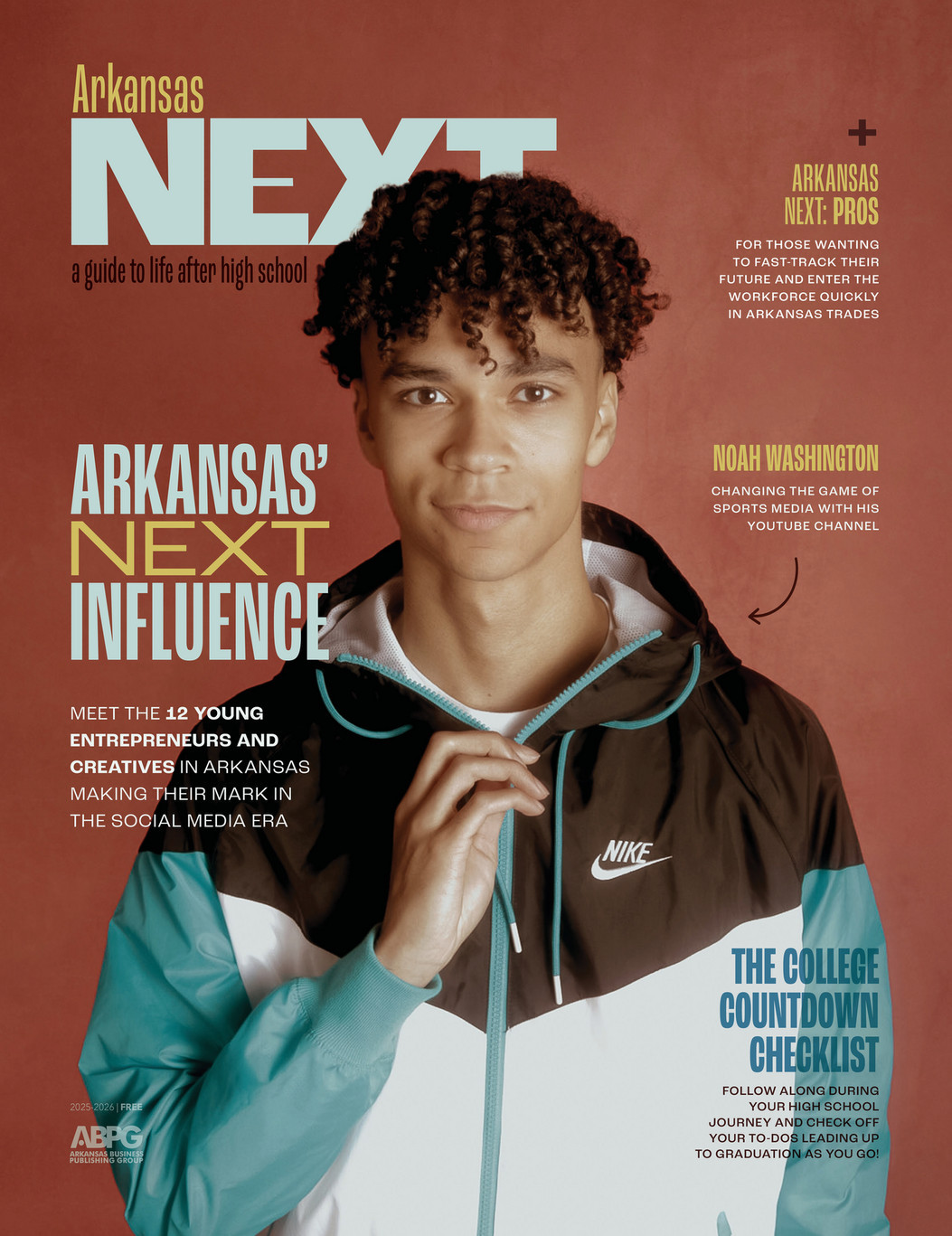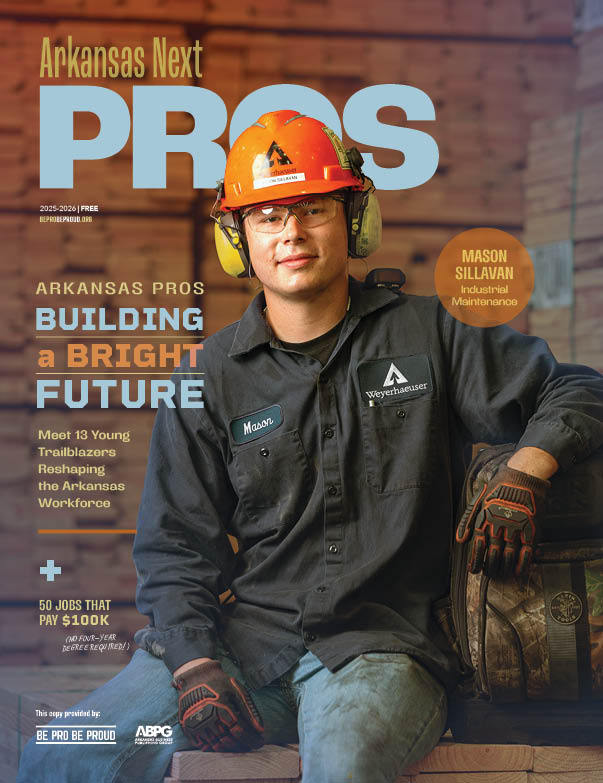Be Professional: The Steps to Take to Land the Job
By Arkansas Next on Tuesday, November 4, 2025
Pro tips for drafting an awesome resume and cover letter (and what you need to know to ace your interview!)
What is a Resume?
A resume is a formal document that tells potential employers why they should hire you. Resumes are important because they give employers a first impression of you before they even meet you. Resumes are a great way to grab the attention of employers and show off your skill sets, education and accomplishments. A great resume has the power to propel you to your dream job, so here are some tips to make your resume stand out for all the right reasons!
A Great Resume Should:
► Be precise and short! Resumes should only be one page. You should only put necessary information like your name, email address and phone number, education, and relative job experience and skills on your resume.

► Grab the attention of employers. You’ve got to stand out against all the other applicants for employers to notice you. If your resume looks just like everyone else’s, chances are it’s not going to make a lasting impression.
► Use bullet points! Using bullet points is the best way to convey important information in a concise way. Bullet points are easy to read and look clean on a page.
► Be tailored for the job you’re applying for. Before you apply for a job, look over the job description and company. Match your skills with keywords from the job description. If you are applying to work in a fast-paced environment, it would be beneficial to note you are quick with deadlines and work well under pressure.
► Proofread! Re-read your resume before hitting the submit button. You may have missed a typo, misspelled word or improper grammar. Your resume is a reflection of yourself and if you have a resume full of errors, future employers may not take you seriously.
What Do Employers Look for in a Resume?
Local experts reveal their secrets to standing out in a pile of resumes.
 “I believe every employer is looking for candidates with experience, whether that’s internships, volunteer projects or real-world work history. Knowing you’ve been around the industry in which you’re applying assures your future employer that you’ll be able to hit the ground running.” —Denver Peacock, Founder of The Peacock Group
“I believe every employer is looking for candidates with experience, whether that’s internships, volunteer projects or real-world work history. Knowing you’ve been around the industry in which you’re applying assures your future employer that you’ll be able to hit the ground running.” —Denver Peacock, Founder of The Peacock Group
 “It’s crucial to showcase your accomplishments and results to potential employers. Even if you’re currently employed, it’s recommended to keep track of achievements such as sales figures, task efficiency or process improvements. This can help you stand out as a strong candidate for future job opportunities.” —Justine Wren, Private Banking Advisor & Vice President at Arvest
“It’s crucial to showcase your accomplishments and results to potential employers. Even if you’re currently employed, it’s recommended to keep track of achievements such as sales figures, task efficiency or process improvements. This can help you stand out as a strong candidate for future job opportunities.” —Justine Wren, Private Banking Advisor & Vice President at Arvest
 “Employers are often looking for specific things you’ve done that demonstrate real-world skills and the ability to get a job done. Be succinct but clear about how you’ve moved the needle for a company, organization or department. Bonus points if you can show how you were able to work with others to collaborate successfully.” —Lance Turner, Former Editor of Arkansas Business
“Employers are often looking for specific things you’ve done that demonstrate real-world skills and the ability to get a job done. Be succinct but clear about how you’ve moved the needle for a company, organization or department. Bonus points if you can show how you were able to work with others to collaborate successfully.” —Lance Turner, Former Editor of Arkansas Business
 “It will vary depending on the individual and industry – [but] the applicant’s background work experience, leadership roles, soft skills and community or volunteer experience would be highlights. If most people have a similar skill set, what sets you apart? Also…Applications are received in the 100s, so having a clean and concise resume [is] a plus. Don’t overload it. —Shamim Okollah, Vice President of Community Outreach at Encore Bank
“It will vary depending on the individual and industry – [but] the applicant’s background work experience, leadership roles, soft skills and community or volunteer experience would be highlights. If most people have a similar skill set, what sets you apart? Also…Applications are received in the 100s, so having a clean and concise resume [is] a plus. Don’t overload it. —Shamim Okollah, Vice President of Community Outreach at Encore Bank
What is a Cover Letter?

A cover letter is a personalized letter you write for the company you’re applying for and telling them why you should be hired. You should use your cover letter to introduce yourself and express your interest in the position. A cover letter presents you with the opportunity to go further into the points you make in your resume. Be specific! Your tone in a cover letter should be professional but friendly. Also, place it before your resume!
A Cover Letter Should Include:
- Contact Information
- Name
- Home Address
- Telephone Number
- Email Address
- Date
- Salutation (Dear Mr./Ms./Prospective Employer)
- Opening Paragraph
- Middle Paragraphs
- Closing Paragraph
Interview Tips
Your resume and cover letter landed you an interview. Now what?
► Practice what you want to say.
► Prepare a list of questions and answers!
► Dress for success. No crop tops or ripped jeans!
► Think positive and be confident! If you’re nervous, take a deep breath.
► Don’t be late. Punctuality is key!
► Be present. Actively listen to the person who is interviewing you and think of thoughtful replies.
► Make a good impression. Your attitude will make or break you.
► Send a follow-up email and thank you card after the interview.















